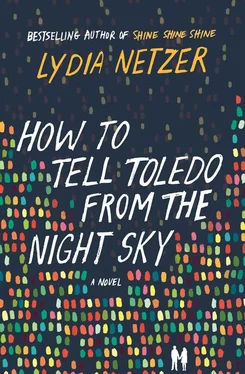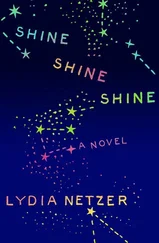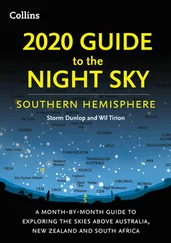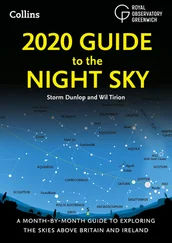And then the cherubs were moving.
Dr. Bryant continued, “Our work, here at the institute, and around the world in other ivory towers, or rather aluminum domes, often goes unnoticed, except when we have enough beautiful pictures to warrant a coffee table publication, or when Hollywood decides to make two asteroid movies in the space of a summer.”
There was a polite chuckle. Dean coughed out a loud laugh, but no one looked over. George was watching the rug very carefully now, his brow furrowed. The cherubs that had been so still, clinging to vines along the very predictable columns woven into the rug, had swung down off the vines and were clambering over the columns and other greenery—woven into the rug in muted tones of gold—and headed toward the head table and the dais.
“We know, as scientists, as mathematicians, that recognition will be interspersed with long intervals of quiet, solitude, in the shadow of the world’s attention. We all need the courage to be ignored.”
The audience nodded, spooned up their soup.
“Of course, we also hope, on behalf of ourselves, our students, and the institute itself, to draw the world’s eye back to astronomy on occasion. Not because the world is about to end, of course, but because we have unlocked another secret, another mystery.”
Dr. Bryant waved affectionately toward the new faculty on his right. George looked up, squinting, and when he looked back down at the rug, the cherubs had all congregated in front of the microphone and were now pointing excitedly at it, as if to say, “Look, George!”
“Perhaps one of these, the new additions to the TIA family of scientists and scholars, could be the next one to put the stars back on the front page.”
Applause sounded in the room. The rug cherubs clapped and turned somersaults. Several marble gargoyles from around the edge of the ceiling now appeared to creep across to where Dr. Bryant was standing and aligned themselves behind him in a bunch. Were they muttering to each other? Were they nodding? Were the columns painted into the walls now hiding flocks of naiads who were peeking around at George, giggling, tugging at each other, and gesturing to him?
“Now without any more pontification on my part,” he went on, clearing his throat, “Let me introduce our featured speaker this evening, one of our new fellows … joining us from Carnegie Mellon University, with a brand new Ph.D. in computational astrophysics and a two-page spread in USA Today coming out tomorrow, covering her groundbreaking research in the genesis of black holes, Dr. Irene Sparks.”
A small dark-haired woman rose from her seat at the head table and went to the podium. She shook hands graciously with Dr. Bryant. He bent down, removed a small block of wood from inside the podium and set it there for her on the floor, and she took a step up on it to stand behind the microphone. She faced her audience, politely smiling. George strained to see better. This woman was the one who’d taken his office and his assistant.
They were probably fifty feet away from each other. How far is fifty feet? To the top of the tallest tree? From one lip of a volcano to the other? As far as a man can go in ten seconds, striding briskly? As far as a man can go in five seconds, falling over himself in enthusiasm? Irene Sparks surveyed the room with a wide smile on her face, as if public speaking classes had encouraged her to make eye contact with the audience.
When she looked at him, George felt himself rising, involuntarily, from his seat. She did not continue showing her friendly smile to the room. She looked straight at him and she halted. From behind the columns painted to the walls, the naiads pointed their fingers. From the cherubs pulling eagerly on vines in the rug, from the gargoyles flocked against the ceiling, all the demigodly fingers were pointing, as if in a giant circle radiating inward, and telling him: her.
It’s not like time stopped for George, or like the stars suddenly shone brighter. It’s not like there were fireworks, or avalanches, or that the woodpecker drilling a hole in the side of his head paused to say, “Wow, she’s a looker.” It’s more like every electron in every atom in the universe paused, breathed in deeply, assessed the situation, and then reversed its course, spinning backward, or the other way, which was the right way all along. And afterward, the universe was exactly the same, but infinitely more right.
“It’s you,” said George. And his mother, next to him, grabbed him by the back of the pants and pulled him down into his seat.
Irene’s jaw dropped. He saw her falter. He felt the moments ticking by, moments where she wasn’t saying anything.
“It’s her, Mom,” said George, pushing his mother’s arm away. “She’s right there.” He said it loudly enough for the room to hear.
“George, sit down, and take some medicine,” said Sally, reaching in her bag for a prescription bottle. “Here, have a pain pill.”
For George it was as though a seed that had been sitting in his brain for twenty years had now opened, sprouted, and flowered in a moment. As though his ears had just popped or he’d just been plunged into water and a whole new layer of sound and feeling was available to him.
He looked at Irene on the podium, blinking stupidly. She obviously couldn’t remember what she was going to say. George beamed stupidly back at her. He felt she knew him. He felt she heard him say, “I missed you. I’m so glad you’re here.”
Everyone else assumed it was stage fright. Irene picked up the water glass and took an indelicate chug. She pressed her lips together.
“Thank you,” she said. George heard her make the words with her mouth. He took in the way she made the words, the way she moved her mouth, the way her hand went up to poke at her hair, the way one foot went sideways, scraping the side of her heel against the podium. It was all so admirable. He admired it.
“Thank you,” she said again. “I want to thank my new colleagues at the institute for choosing me to receive this position.”
The people in the room nodded at each other. It was alright. She was going to be OK.
Irene took a couple of deep breaths and looked up at the ceiling. Look at me, thought George. Look at me , I’m right here. I want you to look at ME.
“You know, when I told my boyfriend I was going to create a black hole in my laboratory, he was like, ‘Wow, I hope you have a really excellent copper casing and a very accurate calibrator for your magnetic containment field!’”
Boyfriend, thought George. But the word didn’t really mean anything. She laughed nervously. The rest of the room was silent. “No, actually he didn’t say that. But, obviously, since the earth and all matter didn’t collapse into my work space, I must have had the thing calibrated pretty well.”
Irene glanced around the room. It seemed like she was purposefully avoiding looking at George. The cherubs laughed. The naiads slapped their naked thighs. The gargoyles were pulling the petals out of the ornamental daisies on the stone decorations. She loves him. She loves him not.
“Little did I know the attention my experiment would receive. I’m just so humbled, and grateful, to be here. With all of you…”
Irene’s eyes locked onto George’s again, and he felt the sensation of being plunged underwater, feeling lighter, looser, more fishlike.
“I haven’t been able to understand exactly why I was a scientist,” said Irene to George, “until now. Have I? Have I been able to?”
George nodded his head vigorously. He had not been listening to the words she was saying, but he felt sure any question she asked must be answered with “Yes.”
“But now I do,” she said. “Thank you.”
Читать дальше












